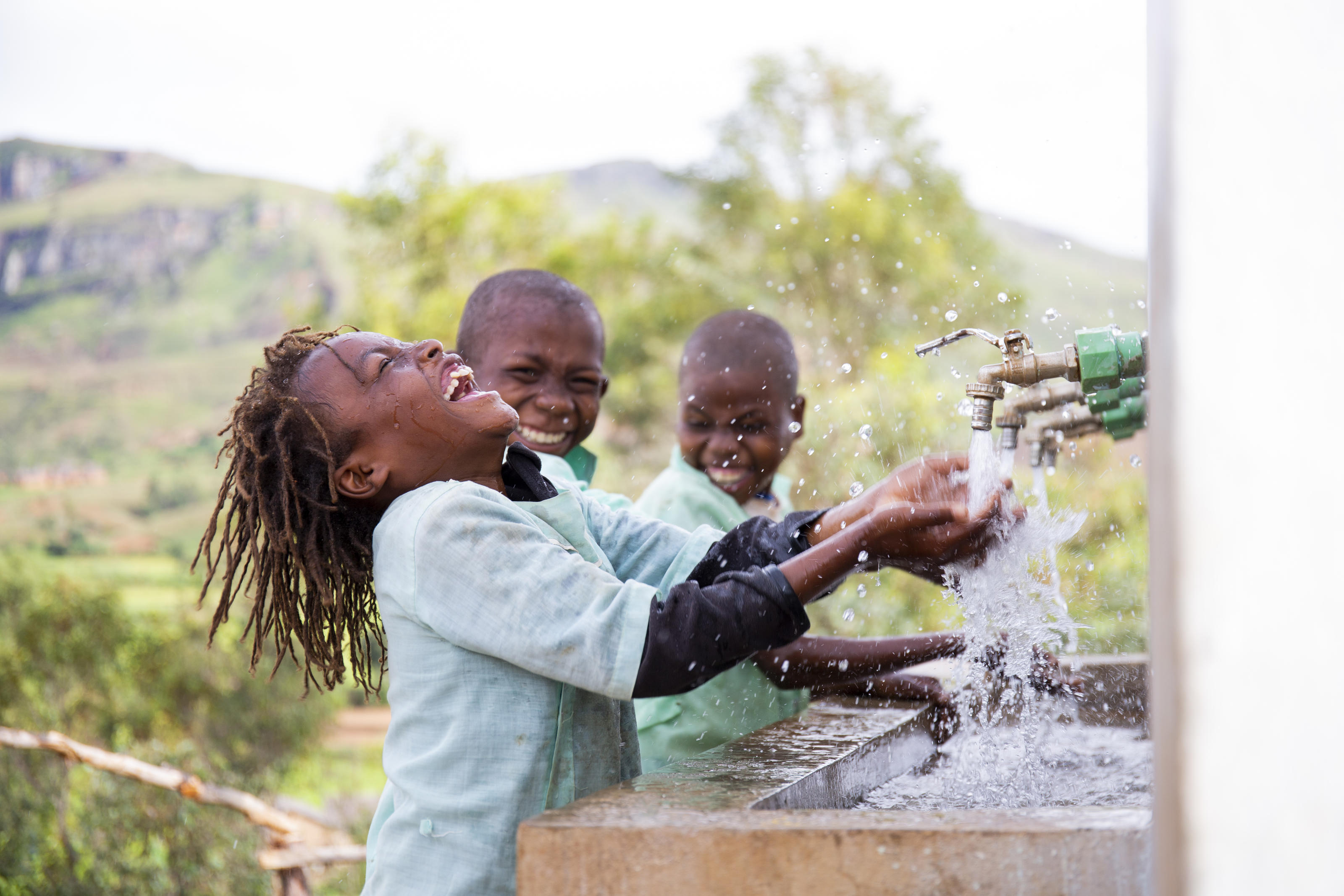UNGA 2023: An opportunity to accelerate corporate action for WASH

Authored by Sarah Dobsevage, Managing Director, Partnerships & Philanthropy, WaterAid America
We are two-thirds of the way through 2023, a significant year for the water and WASH agendas. After the historic UN 2023 Water Conference in March, the UN General Assembly meetings from September 18-23 held the promise of a continued focus on water. The UN convened the SDG Summit to take stock of progress and identify ways to accelerate action for the SDGs. Though climate continued to take center-stage, water increasingly came up in conversations, and even became the headline theme for the UN Global Compact’s Leaders’ Summit. We come away from UNGA emboldened to catalyze and facilitate greater actions for WASH from the corporate and investor communities.
Imperative to move faster for Global Goal 6
As we heard throughout the week, the Global Goals remain significantly offtrack, with only 15% of the goals on track, even though we are half-way to 2030. This will require all segments of society to accelerate their actions. For the business community, there was widespread recognition that they are facing several simultaneous crises: 90% of CEOs reported that they were concerned about ten or more existential threats impacting their supply chains from wars, pandemics and extreme weather events. A key part of this threat are the very real physical impacts they are seeing from climate change’s impact, including on water cycles.
The global business community are leaning into sustainability strategies as a mechanism to not only respond to what they are seeing, but also as an avenue for growth independent of external factors. This recognition offers an avenue to view work on water and WASH not only from a risk mitigation, and regulatory compliance angle, but from a growth and resilience angle, very much in line with the findings from WaterAid’s Boosting Business work.
With this recognition, the drivers for corporate action are now not only in the hands of the sustainability teams but increasingly are becoming embedded across functions from legal to procurement, driven by forward-thinking CEO leadership.
This is all encouraging, but time and again the many events across the UN General Assembly and NY Climate week spoke to the need for real collaboration, not just speaking to it, but finding the practical places where collaboration can happen across sectors. WaterAid is playing a leading role in this space with the Women & Water Collaborative and the Resilient Water Accelerator.
The opportunity for investment
With significant work needed to be done, a series of conversations throughout the week focused on finding the financing needed to address major funding gaps. Three key themes emerged:
- The role of disclosure frameworks such as the Task Force for Nature-Related Financial Disclosures as well as looming mandatory requirements as a mechanism to raise awareness and increase impact investments in the space, including for water.
- The interest from companies to find the opportunities for impact investing, moving away from corporate sustainability projects, to utilizing balance-sheet investments to drive returns for companies while simultaneously meeting their own sustainability targets.
- The necessary policy environment for this to happen, with the recognition that governance and enabling policies to de-risk investments will need to be in place to drive private investments into water and WASH.
Across a range of events, water-related investments were cited, whether wastewater treatment, or water access solutions that yielded returns on investments for investors while helping corporates to meet their own sustainability targets. The emergence of the nature agenda to coincide with the climate agenda is propelling some leading corporates to bring their work on these various issues together, with water being a key driver that could address and deliver against nature, mitigation and resilience goals. Most companies are, however, struggling to balance competing and escalating priorities across carbon, climate and nature.
Accountability and what happens next
Throughout the many meetings, underlying the conversations was the very real need for corporates to not only speak about their commitments but to take concrete action, through increasing investments for their operations and supply chains, in investment vehicles that have societal benefits, or through scaled-up collective action. The focus from the corporate water stewardship community to work together toward being able to show that their activities lead to a positive impact in 100 basins by 2030 began during the 2023 Water Conference, continued through World Water Week and was reinforced during the UN General Assembly; this will be a critical accountability measure to show that real change is happening.
All these developments afford an opportunity to those working in WASH to work with corporate actors to turn commitments to action, underpinned by the recognition that this is no longer only a philanthropic endeavor, but a way to drive long-term resilience for companies and ensure long-term growth. We come away from the week ready to do so, looking to identify how to best leverage corporate strengths toward WASH areas of most need bringing about the systems change we’ve all been working for.
WaterAid 101
From advocacy to engineering, we cover a lot of ground, but the fundamentals of our work are simple:
Taps
Clean water infrastructure means people can access clean, running water 365 days a year.
Toilets
Toilets matter more than you might think. Sanitation is fundamental for the dignity and health of a community.
Hygiene
Hygiene is the final piece of the puzzle. Good hygiene helps people stay healthier, it prevents the spread of diseases and allows people to flourish.



